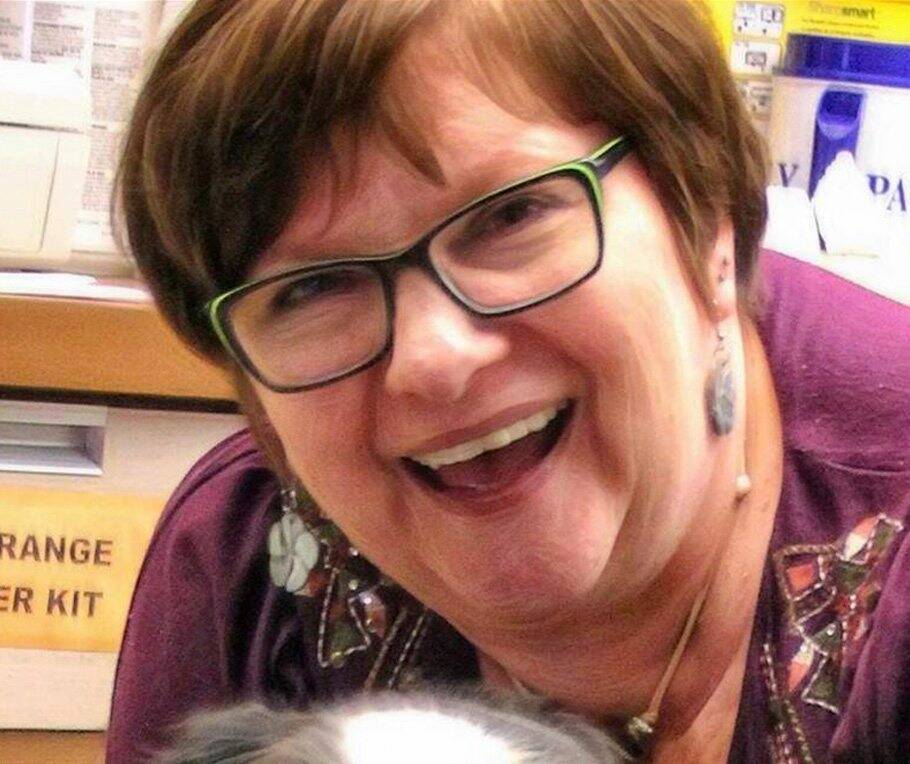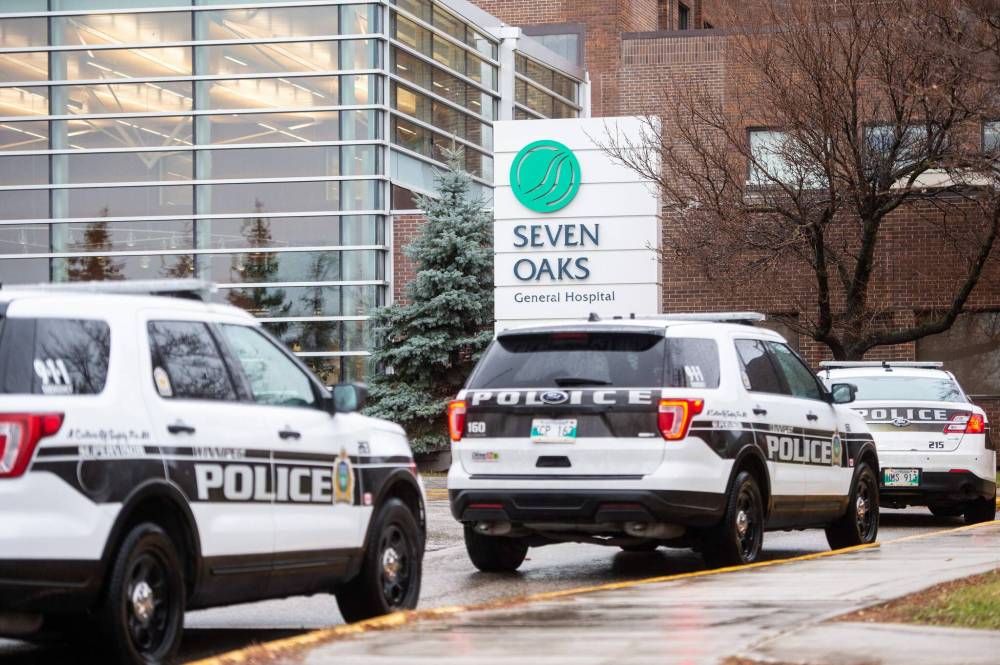Man accused of killing parents, stabbing co-worker pleads not guilty Crown, defence agree accused not criminally responsible, seek high-risk designation
Read this article for free:
or
Already have an account? Log in here »
To continue reading, please subscribe:
Monthly Digital Subscription
$1 per week for 24 weeks*
- Enjoy unlimited reading on winnipegfreepress.com
- Read the E-Edition, our digital replica newspaper
- Access News Break, our award-winning app
- Play interactive puzzles
*Billed as $4.00 plus GST every four weeks. After 24 weeks, price increases to the regular rate of $19.00 plus GST every four weeks. Offer available to new and qualified returning subscribers only. Cancel any time.
Monthly Digital Subscription
$4.75/week*
- Enjoy unlimited reading on winnipegfreepress.com
- Read the E-Edition, our digital replica newspaper
- Access News Break, our award-winning app
- Play interactive puzzles
*Billed as $19 plus GST every four weeks. Cancel any time.
To continue reading, please subscribe:
Add Free Press access to your Brandon Sun subscription for only an additional
$1 for the first 4 weeks*
*Your next subscription payment will increase by $1.00 and you will be charged $16.99 plus GST for four weeks. After four weeks, your payment will increase to $23.99 plus GST every four weeks.
Read unlimited articles for free today:
or
Already have an account? Log in here »
Hey there, time traveller!
This article was published 16/10/2023 (738 days ago), so information in it may no longer be current.
A Winnipeg man is asking a judge to find him not criminally responsible for the 2021 deaths of his parents and stabbing of his work supervisor, arguing he was in the grip of hallucinations that made him believe the victims were “contaminated by evil.”
Gasps could be heard in the courtroom Monday as Trevor Farley, 39, stood in the prisoner’s box, flanked by his lawyers, and pleaded not guilty to first-degree murder and second-degree murder in the respective killings of Judy Swain and Stuart Farley, and not guilty to attempted murder for a knife attack on Candyce Szkwarek.
“There were a few gasps in the gallery with the not-guilty pleas,” said Crown attorney Rustyn Ullrich. “For the record, Mr. Farley is acknowledging having done the things listed in the indictment but that he is not guilty” due to mental disorder.
Prosecutors and defence lawyers are jointly recommending King’s Bench Justice Ken Champagne find Farley not criminally responsible for the attacks.
A finding of not criminally responsible requires that an accused was suffering from a mental disorder and did not know what they were doing was wrong and did not appreciate the consequences of their actions.
A 52-page forensic report provided to court found in the weeks and days leading up to the Oct. 27, 2021, attacks, Farley was suffering from “religious-based command hallucinations” that made him believe the victims were “contaminated with evil” and the evil needed to be “cut out.”
“This mental state caused Mr. Farley to believe his actions were morally justified,” Crown attorney Shannon Benevides told court Monday.
Champagne will deliver his ruling Tuesday morning.
Offenders found to be not criminally responsible for their crimes are assigned to the Criminal Code Review Board, a quasi-judicial tribunal that reviews treatment progress and rules when an offender can be safely released from hospital to the community.
In what is believed to be a first in Manitoba, prosecutors and defence lawyers are recommending Farley be designated a high-risk accused. If so designated, Farley would be required to appear before a judge prior to any ruling by the review board granting him release.
More than 50 people filled the Winnipeg court gallery, with Szkwarek and supporters on one side and Farley’s two brothers, sister and supporters on the other.
Ullrich read out a lengthy agreed statement of facts detailing the days leading up to and immediately after the attacks and Farley’s attempts to get help for his deteriorating mental condition.
Court heard at the time Farley was separated from his wife of 12 years and living at a residence his mother helped secure for him on Home Street. Text messages between Farley and his mother in the days prior to the attacks included “discussion and concerns about Farley’s mental health,” Ullrich said.
Farley’s wife called the Crisis Response Centre on Bannatyne Avenue two times in late August 2021, with concerns about his mental health, inability to sleep and paranoia. She said symptoms started to appear years earlier when he was finishing nursing school and, over the past two years, would “come and go.”
Farley’s wife called the crisis centre again Oct. 23, 2021, to say she had tried to convince Farley to visit the facility but he refused to get out of the car.
Two days later, Farley, who did not support vaccination for COVID-19, visited the crisis centre shortly after 7 p.m. complaining of COVID symptoms and having difficulty thinking.
Farley went to Health Sciences Centre shortly before 8 p.m. and reported he was having a mental health crisis, before leaving an hour later for St. Boniface General Hospital, where he requested and received a prescription for an anti-depressant medication and left.
Farley returned to the emergency room just before midnight, reporting he had suffered “increasing anxiety” and “impending doom” on the drive home. Farley told hospital staff he had a chronic mental health issue, heard voices and had an “ability to engage in paranormal activities due to his superior intellect.”
Farley was discharged with a recommendation to see a counsellor.
He visited the crisis centre just before midnight Oct. 26, and stayed overnight. Farley was assessed by a psychiatric health team, who determined he should be admitted involuntarily. According to an admission form, Farley reported believing he was a prophet, had delusions his phone was being hacked and a patient at his hospital was a paid actor.
Around 9:30 a.m. Oct. 27, Farley tried to send his father a text message reading: “Goodbye dad.” At 11:08 a.m., Farley sent Stuart an email reading: “Please don’t ever call me again.”

Farley left the crisis centre at 11:35 a.m. and drove to his father’s Toronto Street home.
Stuart Farley was in the living room, talking to a friend on the phone, when Trevor Farley stabbed him 33 times. Police arrived to find two bloody knives on a living room table next to the body.
By 12:30 p.m., Farley was in New Bothwell, some 40 kilometres south of Winnipeg, where he found his mother at home on the phone talking to his wife.
Judy Swain was heard screaming “Trevor” before Farley stabbed her multiple times and beat her with a blunt object.
Farley drove off seven minutes later, arriving at the St. Boniface hospital ER around 1:30 p.m., where, after an “unusual interaction” with a triage nurse, he left and drove to the crisis centre, arriving at approximately 1:54 p.m.
He walked into the crisis centre vestibule and exited moments later.
Twenty minutes later, Farley was at Seven Oaks General Hospital, where he had worked as a nurse.
He walked through the main entrance with a knife in his hand, hugged to his body.
Farley’s nursing supervisor Szkwarek was standing at an information desk talking to a co-worker when he walked by. She saw him and said: “Hi, Trevor.”
Farley turned around and stabbed Szkwarek in the back, chest, abdomen and neck before throwing her to the ground. The attack was only halted by the intervention of a staff doctor, who pulled Farley away.
Farley ran out of the north end hospital, knife still in hand, and was immediately arrested by police.

Szkwarek was taken to HSC in critical condition and remained in hospital for more than three months.
dean.pritchard@freepress.mb.ca

Dean Pritchard is courts reporter for the Free Press. He has covered the justice system since 1999, working for the Brandon Sun and Winnipeg Sun before joining the Free Press in 2019. Read more about Dean.
Every piece of reporting Dean produces is reviewed by an editing team before it is posted online or published in print — part of the Free Press‘s tradition, since 1872, of producing reliable independent journalism. Read more about Free Press’s history and mandate, and learn how our newsroom operates.
Our newsroom depends on a growing audience of readers to power our journalism. If you are not a paid reader, please consider becoming a subscriber.
Our newsroom depends on its audience of readers to power our journalism. Thank you for your support.









